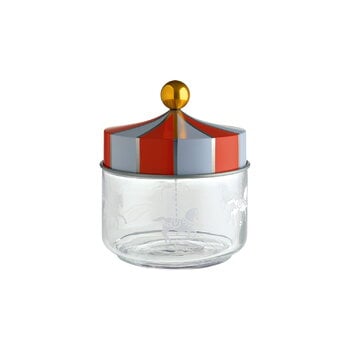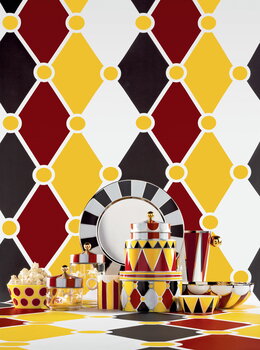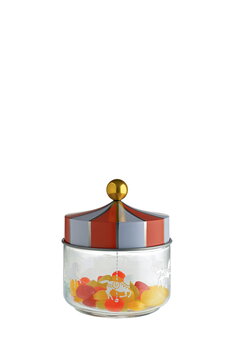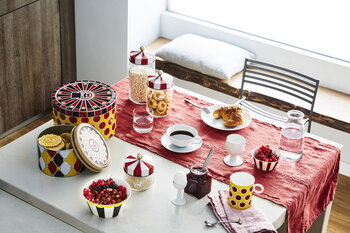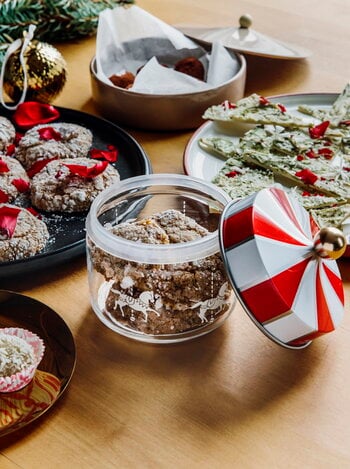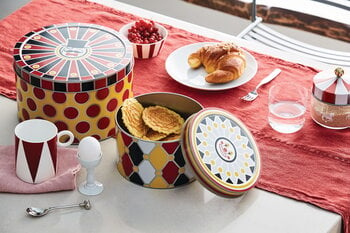Alessi’s Circus glass jars are decorated with white carousel horses. The red and white tinplate lid features a sealing ring and a golden knob. The canisters are available in different sizes.
Circus is a playful kitchen and serving collection designed by Marcel Wanders for the Italian design brand Alessi. The collection was inspired by the ambience of old, colourful circus tents, where bright shades of yellow and red combine with strong black and white patterns and the shine of gold and silver. The Circus collection transforms the delightful spirit of old-time circus into a modern shape and fills the table with joyful atmosphere.
